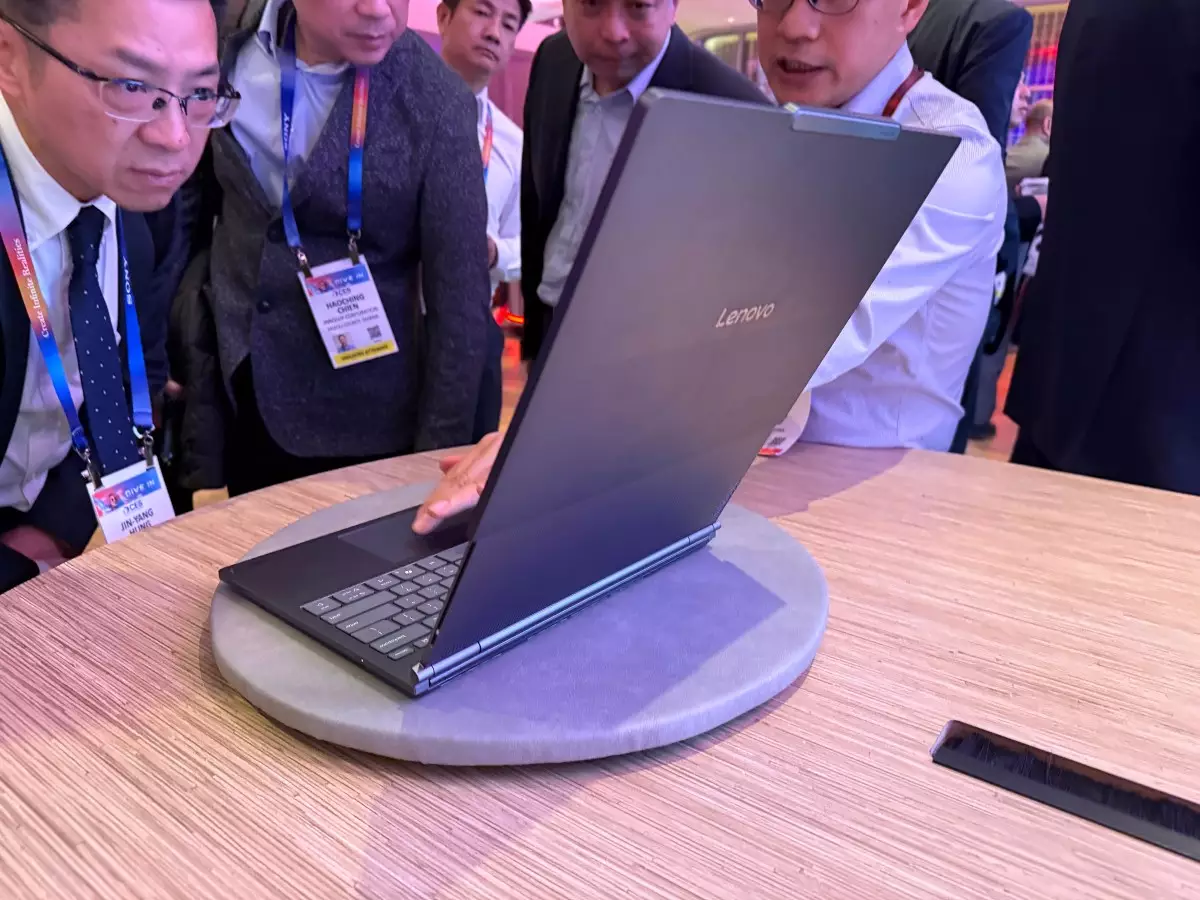In a technology landscape often dominated by risk-averse giants, Lenovo emerges as a beacon of bold innovation, particularly within the realm of consumer hardware. While many corporations tend to stick to the safe route—making only incremental updates to their products—Lenovo consistently demonstrates a willingness to explore uncharted territory, especially at trade shows like CES. Year after year, the company showcases a blend of tangible products and imaginative concepts that defy the conventional limits of PC manufacturing. As they lay out plans for new technologies, Lenovo emphasizes its commitment to pushing boundaries, an ethos that challenges the current state of the market.
At CES 2025, Lenovo unveiled a groundbreaking development: the rollable laptop, represented by the ThinkBook Plus Gen 6. This innovation signals a pivotal shift from mere concept to tangible product, set to be launched later this year at a premium price of $3,500. The standout feature of this laptop is its unique display, capable of mechanically expanding to an impressive size of 16.7 inches. Unlike traditional designs, the process of unfolding the screen is gradual and carefully designed—it may take around ten seconds for it to fully transition. On a superficial level, one might scope this innovation as “cool,” but its practical applications are what truly make it extraordinary. By allowing users to enjoy a larger screen in a compact device, Lenovo draws parallels to the emerging trend of foldable smartphones, merging functionality with innovative aesthetics.
Exploring Concepts of the Future
While the ThinkBook Plus Gen 6 certainly takes center stage, other remarkable concepts showcased at CES are noteworthy as well. Lenovo introduced a large-screen desktop that boasts advanced motion tracking capabilities, seamlessly adapting its position in response to the user’s movements. This remarkable feature is reminiscent of Lenovo’s previous showcase of the Auto Twist AI PC—a desktop that ‘twists’ itself to enhance user engagement. The company’s consideration of environmental impact also stood prominent in this concept, constructed from sustainable materials like bamboo and corn. In a bid to further integrate sustainability into technology, the accompanying wireless keyboard harnesses energy from the ambient light created by the monitor itself.
Lenovo’s commitment to innovation does more than just push the envelope; it sets a new standard for what consumers can expect from PC manufacturers. As the industry navigates a landscape filled with cautious strategies, Lenovo’s audacious moves remind us that there is still much room for exploration. The ThinkBook Plus Gen 6 and its contemporaries not only showcase technological advancements but also invite consumers to rethink how they interact with their devices. In a world of stagnation, Lenovo leads the charge, transforming fanciful concepts into furniture that can potentially revolutionize daily tasks and ergonomics. As we look to the future, it’s clear that Lenovo is not just a player in the tech industry; it is a pioneer, ushering in a new era of creativity and sustainability.

